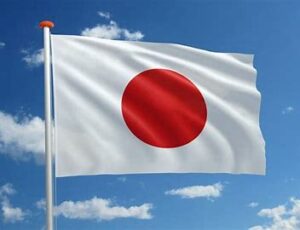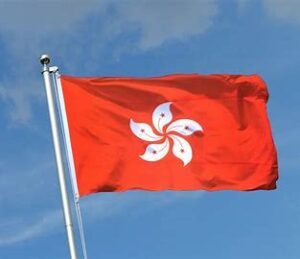
Australia Issues a Draft Law to Amend Global Minimum Tax Rules
On February 16, 2026, Australia issued the Taxation (Multinational—Global and Domestic Minimum Tax)
Amendment (2026 Measures No.1) Rules 2026, to amend its Global Minimum Tax Rules.
This requirement to exclude the deferred tax treatment used in the financial accounts and instead determine deferred tax based on the GloBE carrying value/substituted GloBE amount applies in numerous cases, for instance:
Stock based compensation election – Any deferred tax expense must be calculated by reference to the stock based compensation amount included in the Constituent Entity’s GloBE Income or Loss
Intragroup transactions at cost – As noted above, any deferred tax asset or liability in relation to the acquired asset (or liability) must be calculated for GloBE based on the acquired asset’s (or liability’s) carrying value for GloBE purposes, and the acquiring Constituent Entity’s tax basis.
Realisation basis election – Any deferred tax expense for the purposes of determining the Constituent Entity’s Adjusted Covered Taxes must be determined by reference to the GloBE carrying value of the relevant assets at the commencement of the Fiscal Year in which the election is made. For assets acquired after the first day of Fiscal Year in which election is made, Adjusted Covered Taxes must be determined by reference to the carrying value of the asset (determined in accordance with the GloBE Rules, including the election to use the realisation method).
Chapter 6/7 Adjustments (for group restructuring), generally – where a Constituent Entity’s FANIL is adjusted to reflect Chapters 6 (or 7), its Adjusted Covered Taxes, including its Total Deferred Tax Adjustment Amount must be calculated reflecting equivalent adjustments to the carrying value of the assets or liabilities.
Article 6.2.1(c)
This provides that a target in the acquisition year and each succeeding year shall determine its GloBE Income or Loss and Adjusted Covered Taxes using its historical carrying value of the assets and liabilities.
GloBE Impact: The computation of a Constituent Entity’s Total Deferred Tax Adjustment Amount for the Fiscal Year in relation to assets and liabilities to which this applies must be calculated based on the carrying value of those assets or liabilities for GloBE purposes (corresponding to the historical carrying value, as of the year of the acquisition, and adjusted for depreciation, amortisation as well additions, capitalised expenditure and disposals of the assets and liabilities of the acquired Constituent Entity for each subsequent Fiscal Year) and accounted for in subsequent Fiscal Years in accordance with the relevant accounting standard.
Article 6.2.2
This treats an acquisition or disposal of an interest in company shareholding as the acquisition or disposal of assets where that is the local tax treatment.
This applies where two conditions are met:
GloBE Impact: The calculation of the acquiring Constituent Entity’s Total Deferred Tax Adjustment Amount for the Fiscal Year and subsequent Fiscal Years in relation to assets and/or liabilities to which Article 6.2.2 applies must be calculated based on their carrying value for GloBE purposes (fair value to the extent a gain or loss on those assets and liabilities was included in the GloBE Income or Loss computation of the disposing Constituent Entity).
Article 6.3.1
Where asset transfers are not recorded at arm’s length or are not recorded in the same amount in the financial accounts of both Constituent Entities a transaction between Constituent Entities located in different jurisdictions is to be adjusted so as to be in the same amount and consistent with the Arm’s Length Principle.
GloBE Impact: the computation of a Constituent Entity’s Total Deferred Tax Adjustment Amount for the Fiscal Year and subsequent Fiscal Years in relation to assets and liabilities which have been adjusted to the arm’s-length basis must be calculated based on their carrying value for GloBE purposes.
Article 6.3.2
This requires an acquiring Constituent Entity in a GloBE Reorganisation to determine its GloBE Income or Loss after the acquisition using the disposing Entity’s carrying values of the acquired assets and liabilities upon disposition.
GloBE Impact: The calculation of the acquiring Constituent Entity’s Total Deferred Tax Adjustment Amount for the Fiscal Year and subsequent Fiscal Years in relation to assets and/or liabilities to which this applies must be calculated based on their carrying value for GloBE purposes (historical carrying value). The GloBE carrying value of the assets and liabilities at the end of the Fiscal Year and subsequent Fiscal Years is determined by applying the relevant accounting standard to the GloBE carrying value.
This would exclude any deferred tax asset or deferred tax liability from the GloBE calculations on acquisition to the extent the GloBE and tax carrying values of the asset or liability are aligned.
Article 6.3.3
This applies where only part of the gain arises from a qualifying GloBE Reorganisation. This requires an acquiring Constituent Entity to determine its GloBE Income or Loss after the acquisition using the disposing Entity’s carrying value of the acquired assets and liabilities upon disposition adjusted consistent with local tax rules to account for the Non-qualifying Gain or Loss.
GloBE Impact: The computation of a Constituent Entity’s Total Deferred Tax Adjustment Amount for the Fiscal Year and subsequent Fiscal Years in relation to assets and/or liabilities to which this applies must be calculated based on their carrying value for GloBE purposes.
The GloBE carrying value of the assets and liabilities at the end of the Fiscal Year and subsequent Fiscal Years is determined by applying the relevant accounting standard to the GloBE carrying value initially determined. This would exclude any deferred tax asset or deferred tax liability from the GloBE calculations on acquisition to the extent the GloBE and tax carrying values of the asset or liability are aligned.
Article 6.3.4
This allows an MNE Group to make an election to reflect the domestic tax treatment where the jurisdiction applies a deemed disposal of assets for tax purposes. The company is treated as though it had disposed of and immediately reacquired its assets. This could crystallise gains or losses on its assets and would uplift the base cost of the assets to the market value for tax purposes.
GloBE Impact: The computation of a Constituent Entity’s Total Deferred Tax Adjustment Amount for the Fiscal Year and subsequent Fiscal Years in relation to assets and/or liabilities to which this applies must be calculated based on their carrying value for GloBE purposes. The GloBE carrying value of the assets and liabilities at the end of the Fiscal Year and subsequent Fiscal Years is determined by applying the relevant accounting standard to the GloBE carrying value initially determined.
Impairment
Where a relevant accounting standard requires assets and liabilities to be tested for impairment purposes, this will not require a separate impairment testing requirement for the GloBE carrying value.
Impairment of an asset or liabilities’ GloBE carrying value will only occur if the accounting value (attributable to the same asset or liability) is subject to an impairment in accordance with the relevant financial accounting standard. In this case, the GloBE carrying value will be reduced to match the accounting carrying value, with the corresponding consequences included in the Constituent Entity’s GloBE Income or Loss and Adjusted Covered Taxes.
Carrying values and the SBIE
The OECD guidance confirms that the use of GloBE carrying values does not apply for the purposes of the tangible asset carve out for the substance-based income exclusion (SBIE).
The SBIE is based on the average of the carrying value (net of accumulated depreciation, amortisation, or depletion and including any amount attributable to capitalisation of payroll expense) at the beginning and ending of the Reporting Fiscal Year for the purposes of preparing the Consolidated Financial Statements of the UPE.
As with most aspects of the GloBE Rules, Article 6.3.1 of the OECD Model Rules provides that the GloBE treatment of intra-group transfers of assets follows the accounting treatment.
The accounting treatment generally values the transfer of assets at fair value (eg FRS 102 requires the total fair value of any consideration as well as the assets, liabilities and contingent liabilities of the acquirer to be determined).
Given many domestic tax regimes permit gains and losses to be deferred on intra-group transfers, Article 6.3.2 of the OECD Model Rules include a similar rule which applies where there is a ‘GloBE Reorganisation’.
A Globe Reorganisation occurs where there is a transfer of assets and:
(a) the consideration for the transfer is, in whole or in significant part, equity interests
(b) the transferors gain or loss on the assets is not wholly or partly subject to tax; and
(c) the tax law applicable to the transferee entity requires them to use the transferor’s tax base as the carrying value of the assets (the so-called ‘stand in the shoes’ principle).

On February 16, 2026, Australia issued the Taxation (Multinational—Global and Domestic Minimum Tax)
Amendment (2026 Measures No.1) Rules 2026, to amend its Global Minimum Tax Rules.

On February 13, 2026, Poland issued a draft law to amend its Global Minimum Tax Law for the December 2023, June 2024 and January 2025 OECD Administrative Guidance. This also includes QDMTT changes, including the introduction of a Local Financial Accounting Standard rule.

On February 12, 2026, Cabinet Resolution No. (2) of 2026, was published in the Official Gazette to provide for the detailed implementation of the IIR and QDMTT in Qatar.

On February 6, 2026, the Italian Revenue Agency approved the model for the GloBE tax Return. This is a consolidated form with information on the calculation of top-up tax under the IIR, UTPR and QDMTT.

On January 29, 2026, Canada’s Department of Finance released draft GMTA technical amendments introducing an elective private investment entity de-consolidation rule for Pillar Two/GMTA purposes.

On January 30, 2026, Japan’s National Tax Agency issued a law implementation circular clarifying certain aspects of its UTPR and QDMTT.

In January 2026, Canada issued the filing procedures for the GIR, GMT Return and the Double Filing Relief Notification.

On January 19, 2026, South Korea issued a Draft Law to amend the Enforcement Decree to the International Tax Adjustment Act. This provides for detailed provisions for the application of the QDMTT and will also extend the Transitional CbCR Safe Harbour by 1 year (as provided in the January 2026 OECD Side-by-Side Package).

On January 19, 2026, the Hong Kong Inland Revenue Department opened its E-filing portal for the submission of Top-Up Tax Notifications
| Cookie | Duration | Description |
|---|---|---|
| cookielawinfo-checkbox-analytics | 11 months | This cookie is set by GDPR Cookie Consent plugin. The cookie is used to store the user consent for the cookies in the category "Analytics". |
| cookielawinfo-checkbox-functional | 11 months | The cookie is set by GDPR cookie consent to record the user consent for the cookies in the category "Functional". |
| cookielawinfo-checkbox-necessary | 11 months | This cookie is set by GDPR Cookie Consent plugin. The cookies is used to store the user consent for the cookies in the category "Necessary". |
| cookielawinfo-checkbox-others | 11 months | This cookie is set by GDPR Cookie Consent plugin. The cookie is used to store the user consent for the cookies in the category "Other. |
| cookielawinfo-checkbox-performance | 11 months | This cookie is set by GDPR Cookie Consent plugin. The cookie is used to store the user consent for the cookies in the category "Performance". |
| viewed_cookie_policy | 11 months | The cookie is set by the GDPR Cookie Consent plugin and is used to store whether or not user has consented to the use of cookies. It does not store any personal data. |